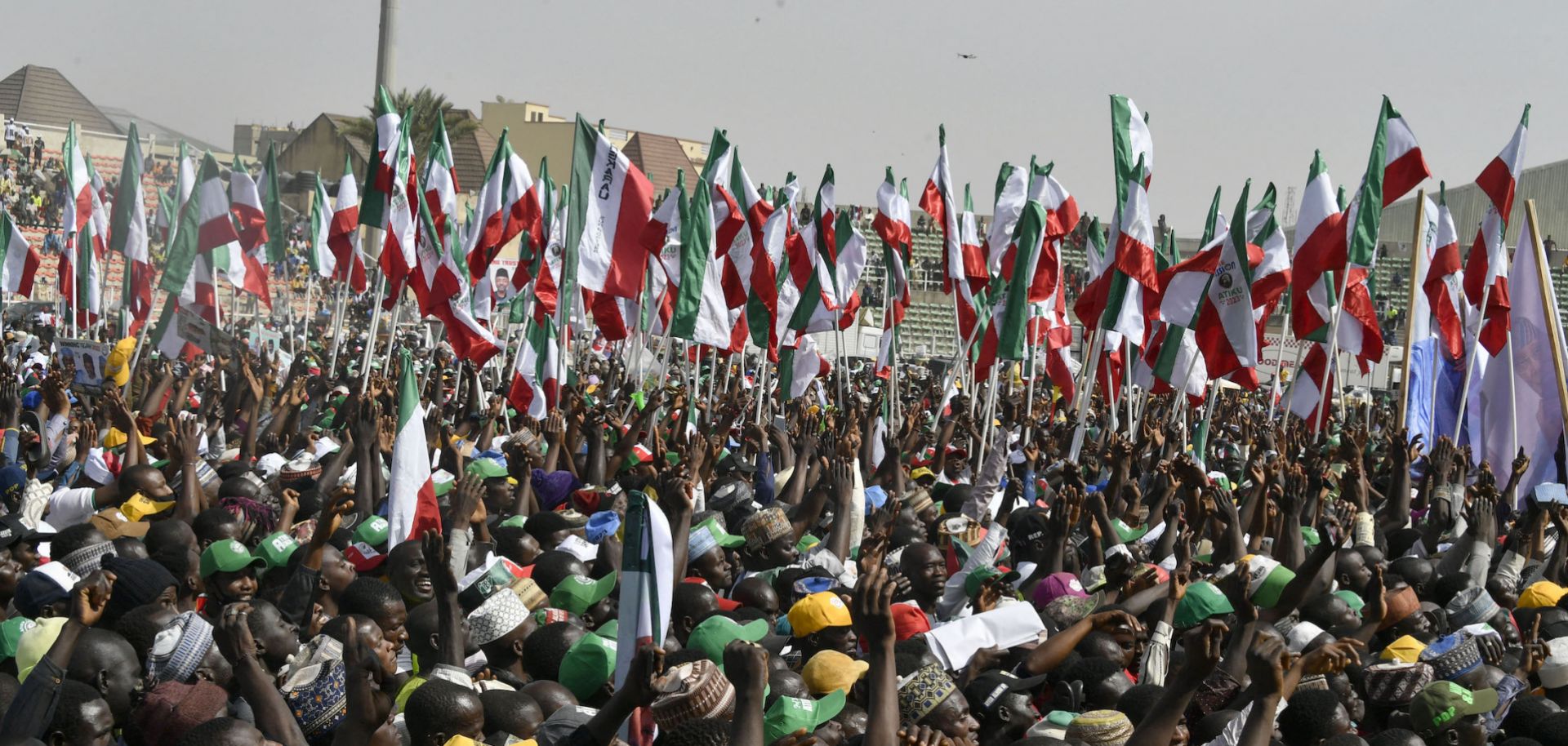Despite a surge in support for the Nigerian Labour Party's presidential aspirant, an establishment candidate is more likely to win the country's February election, which will likely sustain status-quo policies through embedded corruption and regional divisions. On Feb. 25, Nigerians will go to the polls to elect the country's next president at the apex of a highly contentious electoral season. Amid rampant insecurity, falling oil revenues, a currency crisis and fuel shortages, three frontrunners have emerged, each promising to shepherd Nigeria into a new era of prosperity. Regional and religious divides, however, are stirring heightened animosity among Nigerians themselves, particularly as two of the three frontrunners are Muslim and from outside the southeast, breaking from the country's informal power-sharing system that would make Nigeria's next president a Christian southeasterner. This -- on top of candidates' willingness to utilize vote buying, voter intimidation, violence, political corruption and bribery to improve their...

